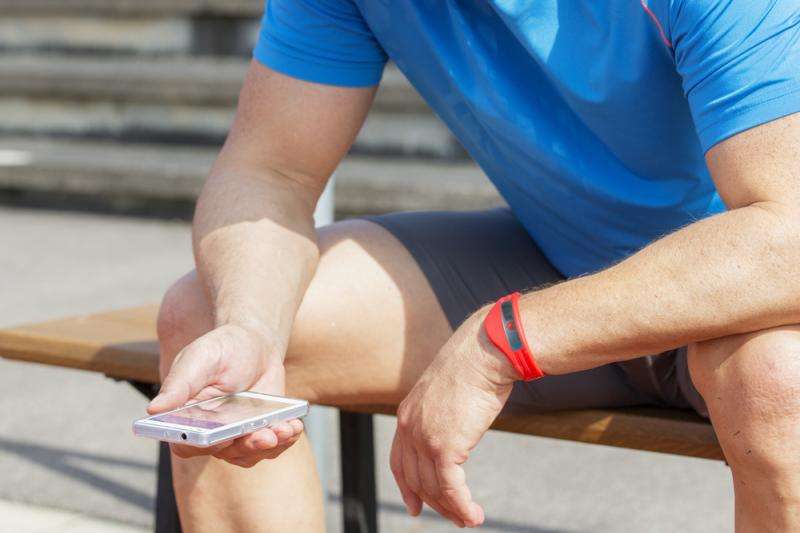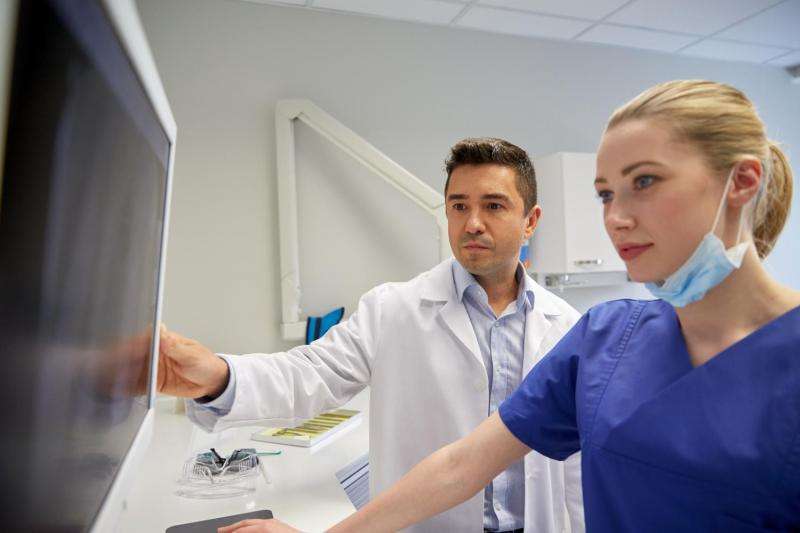Digital natives push for personalized healthcare technology

Millennials and younger generations expect to use their own technologies and biological data to help doctors deliver more personal care.
Caring for a rapidly ageing population is challenging. Experts working to revitalize healthcare for the 21 century are tackling this challenge by shifting from a one-size-fits-all to a more personalized healthcare approach, one that is heavily influenced by how young people use technology.
To combat skyrocketing healthcare costs for an American population of 326 million people spanning six generations, experts are turning to bioscience and new technologies as well as to young, tech-savvy digital natives who are already nudging healthcare into the Internet age.
"We're already seeing that millennials and younger generations won't be the same kinds of patients as their parents," said Eric Dishman, an Intel Fellow and general manager of Intel's Health and Life Sciences.
"These 18-to-34 year olds already expect to have data and tools to help them manage their health just like they do for everything else in their lives."
Propelled by everything from supercomputers and cloud technologies to smartphones and wearables, this personalized approach to healthcare could make the 75.4 million people born between 1982 and 2003 the first generation to see threat of cancer decline, according to Dishman.
"Healthcare reform, information technologies and building out a 21st century healthcare infrastructure…is the space race of the 21st century," said Dishman, who was diagnosed with two rare kidney diseases at age 19.
After 23 years trying a variety of treatments that didn't work, Dishman had his DNA sequenced. His personal genome data along with results from computing analysis done by Intel colleagues helped his caregivers create a treatment plan that got him cancer free, healthy enough to receive a kidney transplant in late 2012.
"There's no doubt that without sequencing, I'd be dead," he said.
His team's "All in One Day by 2020" aims to shorten the time it takes for cancer patients to have their genome sequenced, identify what's causing the cancer and find a treatment plan all within 24 hours.
"It's about precision and making knowledge go faster," he said. "It's going to take all of us working together to deliver this kind of miraculous medical technology sooner."

DIshman means everyone, particularly the younger generations who use technology to pro-actively manage their health.
In the recent "State of the Connected Patient" report by Saleseforce, 71 percent of millennials expressed interested in receiving a mobile app from a doctor or health provider so they could actively manage their well-being for preventative care, review health records and schedule appointments.
Millennials get credit for creating the so-called "quantified self" biometric and activity tracking trend, which has led to a sharp rise in use of health technologies, according to Deloitte. The research firm's recent healthcare consumer report shows that the number of millennials who were using technology to monitor or manage their health nearly doubled in the past two years.
Preventative care is especially critical to the future of healthcare, and many millennials are using technology to practice it routinely.
"They will insist on having a different financial reality for how insurance works," said Dishman, referring to a shift from today's fee-for-service paying systems to a "value over volume" or "paying for performance" approach.
The smorgasbord medicine system that waits until people are sick before they access an all-you-can-eat healthcare cafeteria, where patients get MRIs whether or not one is clinically valuable or affordable, is inefficient, he said.
Medicare is the one of the largest payers in the world in terms of healthcare costs for people, said Dishman. Healthcare in the U.S. needs to improve access to care and quality of care while reduce the costs of care for increasing number of people.
"Over time, financial incentives will encourage younger people to collect their own health data," he said, so professionals can analyze the personal data collected by a smartphone or wearable device.
If people collect personal health data knowing it can be analyzed to find new drugs or prevention strategies, this could bring benefits faster to others diagnosed with a disease, said Dishman.

"The discoveries and the knowledge from big data analytics could lead to people living a longer, higher-quality life," he said, compared with today's life expectancy of 77 years for males and nearly 82 for women in the U.S.
In 2015, there will be an estimated 1,658,370 new cancer cases diagnosed and 589,430 cancer deaths in the US, according to the American Cancer Society. Dishman said that the youngest employees at Intel today could forget that cancer was once a big deal in 2015, if "All in One Day 2020" efforts transform healthcare.
Last month, Dishman addressed the U.S. Senate Health, Education, Labor and Pensions Committee, where he explained how genome-sequencing time could shrink down to one day by 2020. He also noted that a variety of trials could push America's health system into a more promising, interoperable digital age.
"Sometimes you do these things and afterward crickets chirp then tumbleweeds roll by, but this was quite different," Dishman said of the hearing, which was attended by 12 Senators and a packed room of observers.
Dishman focused his Senate presentation on two new data types that most in the healthcare industry don't know how to deal with yet.

"Consumer-generated data from things like wearables or smartphone apps or their tablets or their PCs," he said. "And the other type of data that comes from having your whole genome sequence done."
He described how Intel's Connected Care Program for employees is creating a blue print for making health data secure and sharable between providers and patients; how a collaboration with the Michael J. Fox Foundation is advancing research and treatment for Parkinson's disease by capturing data from wearable technologies; and how the
Collaborative Cancer Cloud with Oregon Health & Science University is enabling large amounts of genomic, imaging and clinical data from sites all around the world to be analyzed in a fast and distributed way, while preserving the privacy and security of that patient data.
"Consumer generated health data is going to be a game changer, but we need new, interoperable technologies to handle it," said Dishman. "We'll need Moore's Law to continue at an inexorable pace in order to be able to process everything for everyone."
Provided by Intel


















